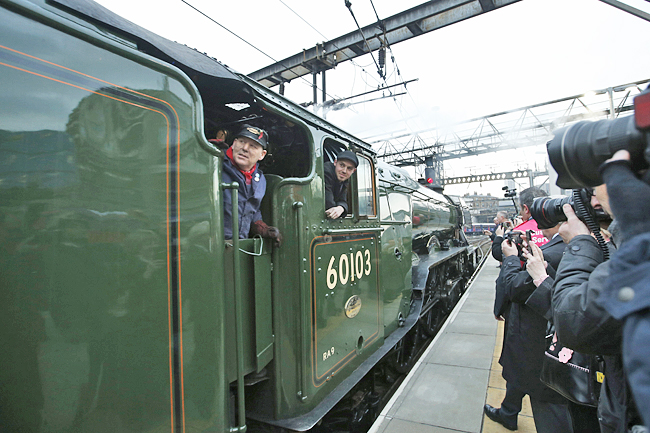LONDON (AP) – Several people were injured after the Flying Scotsman, the historic steam locomotive that’s celebrating its 100th anniversary this year, was involved in a low-speed crash with another heritage train in the Scottish Highlands, United Kingdom (UK), authorities said on Saturday.
The National Railway Museum said the “shunting incident” took place at Aviemore Station in the Cairngorms National Park on Friday. The station is home to a heritage train line that takes visitors on steam train trips in northern Scotland.
The locomotive – often described as the world’s most famous steam engine – was scheduled to run short trips this weekend from the station as part of its centenary celebrations.
The Scottish Fire and Rescue Service said that emergency workers were alerted on Friday night “to reports of a collision” involving two trains at Aviemore. Police Scotland said the crash took place at “low speed”.
Two people were hospitalised as a precaution, and their injuries weren’t believed to be serious. Three others were treated at the scene and didn’t require hospital treatment.
The Belmond and Strathspey Railway said the Flying Scotsman locomotive was being coupled with stationary Royal Scotsman train carriages when the collision took place. Police said that an investigation was underway.
The locomotive will not haul any trains while it awaits inspection, and carriages from the Royal Scotsman were also being assessed. That left many train fans who had travelled from far and wide for the special journey disappointed, local media reported.
The Flying Scotsman went in service in 1923 and was given its famous name a year later. The train connected passengers from London to Edinburgh.
It rose to global fame when it recorded 160 kilometres per hour on a special test run in 1934, making it the first locomotive in the UK to reach that speed.
The train was retired from regular service in 1963.
Since then the locomotive has toured the United States and Australia and continued to run special train trips in the UK until it was acquired by the National Railway Museum in York, which in recent years undertook a multimillion-pound project to restore it.



